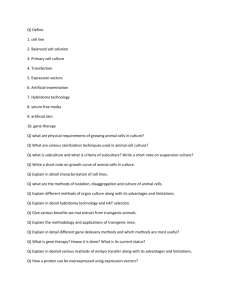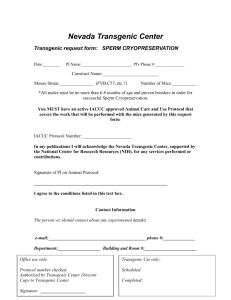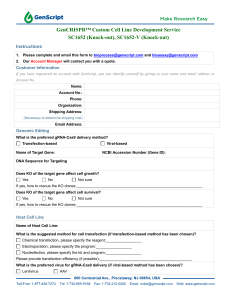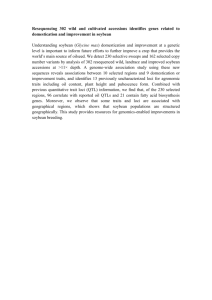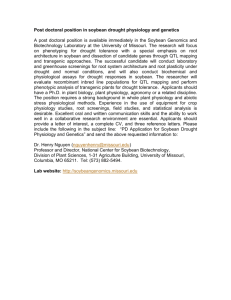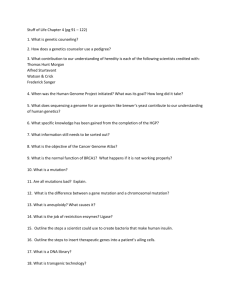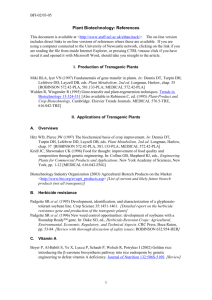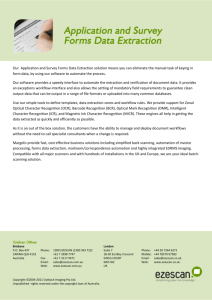Update on PKU transgenic soybean project
advertisement
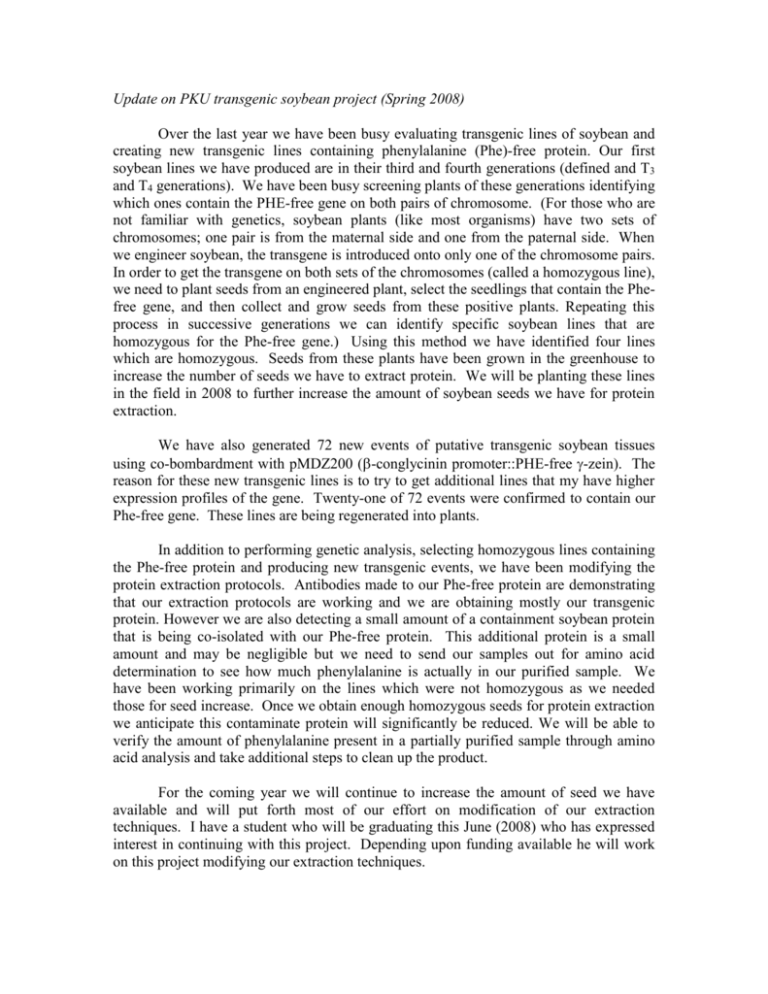
Update on PKU transgenic soybean project (Spring 2008) Over the last year we have been busy evaluating transgenic lines of soybean and creating new transgenic lines containing phenylalanine (Phe)-free protein. Our first soybean lines we have produced are in their third and fourth generations (defined and T3 and T4 generations). We have been busy screening plants of these generations identifying which ones contain the PHE-free gene on both pairs of chromosome. (For those who are not familiar with genetics, soybean plants (like most organisms) have two sets of chromosomes; one pair is from the maternal side and one from the paternal side. When we engineer soybean, the transgene is introduced onto only one of the chromosome pairs. In order to get the transgene on both sets of the chromosomes (called a homozygous line), we need to plant seeds from an engineered plant, select the seedlings that contain the Phefree gene, and then collect and grow seeds from these positive plants. Repeating this process in successive generations we can identify specific soybean lines that are homozygous for the Phe-free gene.) Using this method we have identified four lines which are homozygous. Seeds from these plants have been grown in the greenhouse to increase the number of seeds we have to extract protein. We will be planting these lines in the field in 2008 to further increase the amount of soybean seeds we have for protein extraction. We have also generated 72 new events of putative transgenic soybean tissues using co-bombardment with pMDZ200 (-conglycinin promoter::PHE-free -zein). The reason for these new transgenic lines is to try to get additional lines that my have higher expression profiles of the gene. Twenty-one of 72 events were confirmed to contain our Phe-free gene. These lines are being regenerated into plants. In addition to performing genetic analysis, selecting homozygous lines containing the Phe-free protein and producing new transgenic events, we have been modifying the protein extraction protocols. Antibodies made to our Phe-free protein are demonstrating that our extraction protocols are working and we are obtaining mostly our transgenic protein. However we are also detecting a small amount of a containment soybean protein that is being co-isolated with our Phe-free protein. This additional protein is a small amount and may be negligible but we need to send our samples out for amino acid determination to see how much phenylalanine is actually in our purified sample. We have been working primarily on the lines which were not homozygous as we needed those for seed increase. Once we obtain enough homozygous seeds for protein extraction we anticipate this contaminate protein will significantly be reduced. We will be able to verify the amount of phenylalanine present in a partially purified sample through amino acid analysis and take additional steps to clean up the product. For the coming year we will continue to increase the amount of seed we have available and will put forth most of our effort on modification of our extraction techniques. I have a student who will be graduating this June (2008) who has expressed interest in continuing with this project. Depending upon funding available he will work on this project modifying our extraction techniques. Last, Kansas State University has approved my research sabbatical leave for the Spring of 2009. I will be working with a local biotech company that has experience with extractions of transgenic proteins from plant tissue on a large scale. In addition to working with their scientists to learn how to adopt our extraction protocols to large scale methods, this company has experience in getting nutraceutical proteins though the FDA regulations, a must for this project. Their expressed interest in the project and willingness to host my sabbatical leave is a great way to push this project forward. For this year’s funding request, I will be requesting approximately $30,000 from multiple sources as in the past year. Last year we obtained a total of $14,070 from various sources (Indiana PKU and Allied Disorders, Tennessee PKU Foundation, and USMD) for our research project. The total amount requested will provide funding for a research associate to work half-time on the project plus supplies necessary for modifying our extraction procedures and continued analysis of the transgenic seeds. Harold N. Trick Department of Plant Pathology Kansas State University
